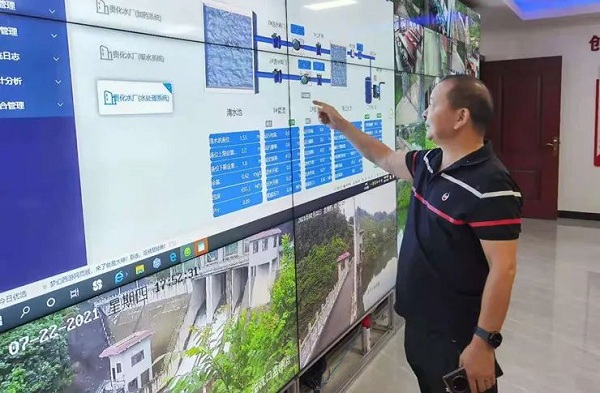Urban-rural water supply integration rate exceeds 94% in Qingzhen

An official from Qingzhen's water supply bureau introduces the urban-rural water supply integrated network via an electronic screen. [Photo/Guiyang news network]
Qingzhen in Guiyang, Southwest China's Guizhou province, has been dubbed "a lake city on the plateau", so it is a bit ironic that the city has a water supply problem, considering it boasts many key reservoirs and rivers. However, due to Qingzhen's special geographic features, such as karst landforms and large gaps between relative altitudes, there is an uneven distribution of water in time and space.
"The availability of quality water is directly linked with people's wellbeing, and making quality water available for everyone is a fundamental task of rural revitalization," said Zhao Xianlun, director of Qingzhen's water supply bureau. In order to build a comprehensive smart water supply network that connects urban areas with rural ones, the bureau has redoubled efforts to improve water supply infrastructure in Qingzhen.
In 2019, the government invested 148.19 million yuan ($22.23 million) on phaseⅠconstruction of the Lianhua Mountain Water Plant and established more than 1,000 kilometers of water pipes. Two years later, the city made new investments in the construction of another two water plants and phaseⅡof the Lianhua Mountain Water Plant, solving drinking water security problems for five towns.
The urban-rural water supply integrated network has overcome boundaries between rural and urban areas and made safe drinking water available to 600,000 residents in the city.
Presented by China Daily.
黔ICP备05001922号-3
